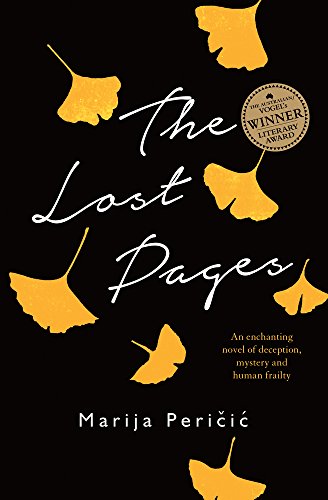The Lost Pages
Famous for his disregard of Kafka’s last request to burn his papers, Max Brod published The Trial, The Castle and Amerika—works that have come to define our modern mind and turning the dead author, as well as his literary executor, into cultural icons. As readers in a Kafkaesque universe, we can’t imagine another turn of events, but what kind of man was this Brod, whose decision to betray his dead friend changed the course of 20th-century literature?
In The Lost Pages, Marija Pericic draws a psychological portrait of Max Brod, who was already a famous writer when Kafka sparred with him over Nietzsche and Schopenhauer. Spurred on by a romantic as well as a professional rivalry with his new friend, Brod becomes obsessed with him and is eventually plunged into an existentialist crisis from which he might never recover. After a mental and emotional breakdown, he questions every certainty he has ever known, including his own identity. In its final moments, the novel becomes a metaphysical reflection upon the self, the understanding of which is forever changed—by meeting, reading, and immersing oneself in Kafka.
Kafka’s biographers have long debated whether Brod was a selfless visionary or a philistine exploiter. In 1939, he took the writer’s papers to Palestine, where he willed them to his secretary, Esther Hoffe. She, in turn, bequeathed them to her daughters, who fought the State of Israel over their possession. In an interview, Pericic revealed that this trial provided the initial inspiration for The Lost Pages, although she eventually came to focus on the more fascinating relationship between Brod and Kafka. The conclusion of her novel contains an ingenious twist when it turns literary history on its head; beware the reader who fails to appreciate Pericic’s Kafkaesque leap of the imagination. A literary escapade that comes highly recommended.










